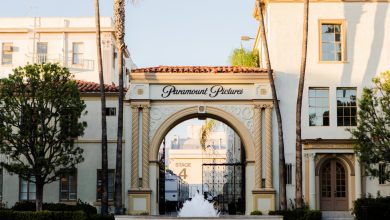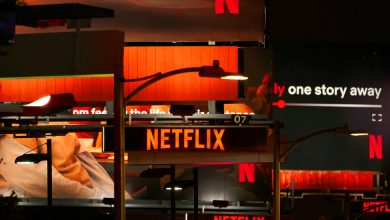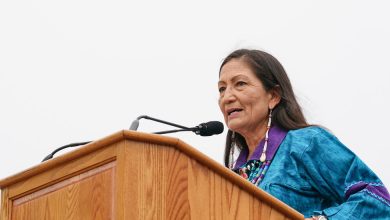Learning to Live With Mark Zuckerberg

After Mark Zuckerberg announced, in a goofy video on Thursday, that he was changing his company’s name to Meta and shifting its focus to the creation of a digital space called the metaverse, he granted interviews to just four media outlets, including exactly zero of the great American legacy publications.
For the outlets receiving a golden ticket, it was a big get. It was also a little embarrassing: What did you do to ingratiate yourself to one of journalism’s biggest targets, just as your competitors were feasting on a leak of thousands of internal company documents?
Only one outlet with access to the Facebook documents — the tech site The Verge — got an interview with Zuck. The other three were The Information, a tech news site, and a pair of relatively sympathetic newsletter-ers, Ben Thompson and Dylan Byers.
The message of this short list was clear: Silicon Valley doesn’t really need East Coast media anymore.
It has been more than half a decade since coverage of the tech industry, once known for its boosterism, turned adversarial, with Facebook often at the center of the story. As the battle between tech companies and the news media continues, Mr. Zuckerberg appears to be acting on the view, increasingly common in his circle, that journalists are just another hostile interest.
As the opposing sides were digging into their trenches, I thought it would be interesting to talk with Jessica Lessin, a journalist and media executive who often finds herself in an awkward spot somewhere between the battle lines, and who also has an unusually charitable view into both camps. She is the founder and editor of The Information, which started in 2013 as the Silicon Valley’s savvy and nimble answer to The Wall Street Journal, where she had been a star reporter.
“Bigger publications would like to make a stink that he’s going to the indies and not the big guys, which is frankly absurd,” she said. “What’s really happening is a recognition that there are many different audiences.”
She also noted that the reporter from The Information who interviewed Mr. Zuckerberg last week had pressed him on whether he would step down as Facebook’s chief executive.
Ms. Lessin has a unique vantage on Mr. Zuckerberg, and on the tensions between tech and the news media. She first remembers hearing his name in 2004, when she edited a story about The Facebook at The Harvard Crimson. She also spent part of the pandemic visiting him at his compound on Hawaii’s island of Kauai — their families are close.
She was in Lake Tahoe, but outside the frame, when Mr. Zuckerberg posted a video on Instagram of his big YOLO moment, when he celebrated the Fourth of July by riding a hydrofoil across the water while waving an American flag. Sam Lessin, her husband, is an old Zuckerberg friend and former deputy. In June, he appeared in a series of photos published in The Daily Mail that showed him marching behind the armed and camo’d Facebook C.E.O. on a mission to hunt either wild boar or wild goats in Kauai.
Ms. Lessin said she sees herself as having both feet firmly planted on the journalism side of the deepening rift, and pointed to tough stories that The Information has done on the company. She said that she doesn’t see her relationship as a conflict of interest, and that she recuses herself when “there is something that could stand in the way of me doing my job objectively.”
“It’s pretty simple — my job is very different from people I know and personal relationships,” she said.
Ms. Lessin dates the hostility between journalists and Silicon Valley to the rise in the mid-2010s of Uber, whose leaders treated the worst features of tech culture — arrogance and misogyny, among them — as features, not bugs, and faced a new kind of adversarial coverage for it.
But Donald J. Trump’s election in 2016 was also central to the shift. Mainstream publications woke up to the centrality of Facebook in a new and sometimes violent and anti-democratic strain of global right-wing populism, a connection that Mr. Zuckerberg at first glibly dismissed. (Reporters also resented being forced to police Facebook’s informational byways like underappreciated mall cops, when Facebook should have been doing that itself.)
In their frenzy to provide a simple explanation for Mr. Trump’s victory, journalists sometimes botched the details and oversimplified the story. This was particularly true in the overhyped case of the political consultant Cambridge Analytica, which embodied fears of a new kind of algorithmic propaganda but which, a British government report later found, never actually did most of the sinister things it bragged about. Accurate reporting and erroneous articles alike bred a deep sense of embattlement in Palo Alto.
Ms. Lessin said she sees a few patterns, and a lot of symmetry. One is that journalists and tech figures are bad at reading one another’s motives.
“Tech companies say journalists are doing this hard-hitting reporting for profit motives” and because they’re angry about losing advertising, she said. “That’s obviously absurd.”
“But journalists who are accusing Facebook of making bad content moderation decisions because they’re only concerned about profits are also missing the point. Most of the time the challenges are around free speech.”
“They’re actually making the same mistake in reverse directions about each other,” she said. “I’m kind of baffled by it.”
Ms. Lessin’s second observation is that many tech chief executives see themselves in a battle with news outlets for the hearts and minds of their own employees. When they blast media coverage, they are also speaking to the people whose salaries they pay.
“The woke revolution in Silicon Valley is fueling this, too,” she said. “Tech executives are completely associating their employees’ activism with media outlets.”
And then there’s Twitter, where up-and-coming tech executives like the Coinbase chief executive Brian Armstrong take inane shots at the news media for industry kudos and journalists show off for one another by mocking “tech bros.”
“Both journalists and tech executives are guilty of thinking Twitter is more important than it is,” Ms. Lessin said. “The tech executives are taking journalists’ tweets too seriously in many cases — but at the same time, it’s hard to build any professional relationship with someone who’s attacking you publicly all day long.”
I’m not sure it’s always quite as symmetrical as Ms. Lessin believes. Silicon Valley ideology sometimes lines up too conveniently with its profits to be taken entirely at face value. And the industry’s scale and power are unmatched.
Ms. Lessin also noted that journalists and the tech giants are stuck with one another at this point. Higher-ups in Silicon Valley, led by an influential Facebook board member, Marc Andreessen, have spent years floating fantasies of replacing the adversarial news media and appealing directly to their consumers and investors. But they have yet to come up with a platform that allows them to outdo the independent news outlets when it comes to communicating with their own employees, much less the general public.
Mr. Andreessen’s venture capital firm, Andreessen Horowitz, invested in the social audio platform Clubhouse in that hope, only to see it fade into an obscure global home for multilevel marketing discussions. The company also started a media platform, Future, amid nervous newsroom chatter that the tech industry “no longer needs” journalists. Several months in, Future threatens no one, though the firm’s head of marketing and content, Margit Wennmachers, told me in a message on (Meta’s!) WhatsApp that both projects are merely in their “infancy” and warned against underestimating them.
Mr. Zuckerberg is aware that he can’t yet be completely free of the mainstream news media. While he gave interviews to only four outlets last week, he quietly briefed more than a dozen larger news organizations, including The New York Times, before his big “Meta” announcement, an aide said.
The tech giants haven’t exactly withered under the news media’s scrutiny, either. Indeed, covering these companies, Ms. Lessin said, requires a kind of “split-screen.” Tech companies’ businesses (in Facebook’s case, advertising) have so far been unaffected by all the exposés and the government investigations that followed. As journalists mocked Mr. Zuckerberg’s metaverse, the company’s stock ticked up.
And so the conflict between the media and tech industries is looking more and more like a stalemate. We may not all be spending the next pandemic in Hawaii with Mr. Zuckerberg, but we’ll probably be living with him a while longer.



